10 small kitchen design rules I always use – to maximize a compact space
If you are revamping a tiny kitchen, these design rules will help you get the space just right

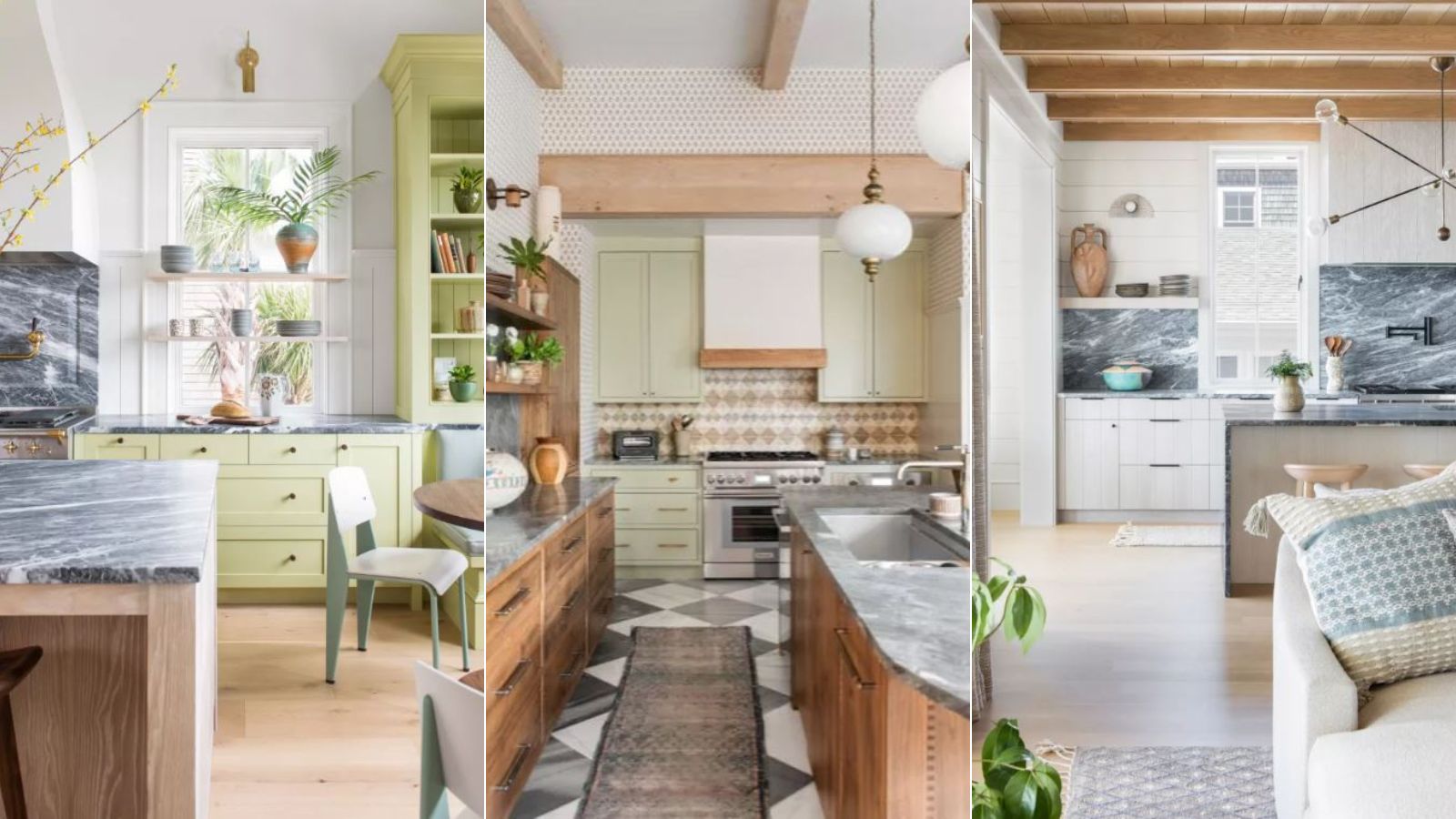
- 1. Opt for integrated appliances
- 2. Max out under-counter space
- 3. Ensure natural daylight
- 4. Boost kitchen lighting's appeal
- 5. Open up the space with on-show shelving
- 6. Include curves to enhance space
- 7. Link your color scheme
- 8. Use fewer materials
- 9. Pick complementing colors
- 10. Focus on the range
When you're designing a room with a compact footprint, it's worth working to a tried and tested formula.
This is particularly important if you are looking for small kitchen ideas. The kitchen is perhaps the most vital space to get right first time: it's expensive to fit out and designed poorly can be really compromising.
My small kitchen design rules will help you get your space spot on.
1. Opt for integrated appliances
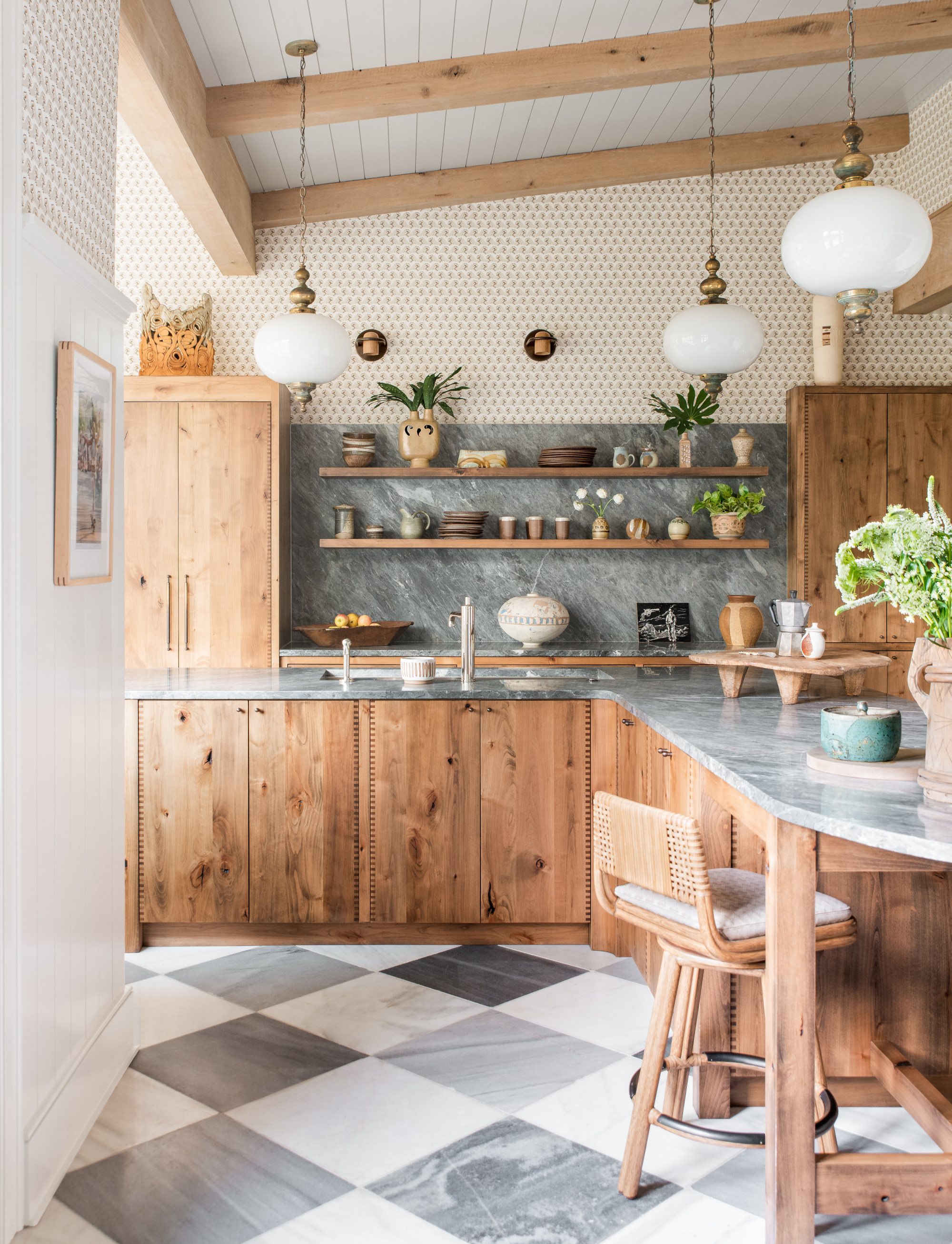
Appliances with panel fronts that can seamlessly match your cabinetry details are a must. Integrated appliances are crucial because they add uniformity and clean lines, resulting in cleaner spaces. Make sure to request them from your appliance dealer!
2. Max out under-counter space
Opt for counter-depth appliances. The additional inches they save make a significant difference in creating a streamlined and space-efficient kitchen design.
3. Ensure natural daylight
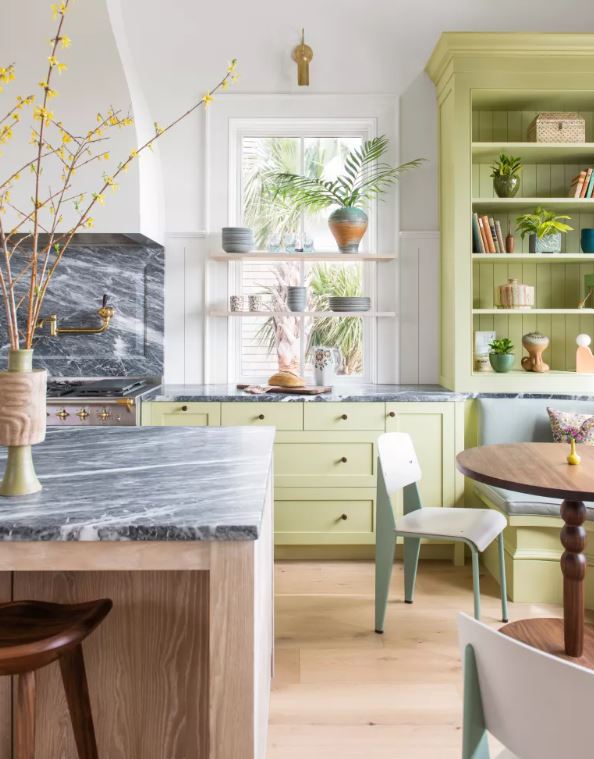
In a small kitchen, it is preferable to have a window to bring in natural light. If a window is not possible, consider eliminating upper cabinetry on one side to create a more open and spacious feel.
4. Boost kitchen lighting's appeal
Ensure you have ample lighting in your kitchen and consider using decorative ceiling fixtures instead of just recessed cans. This will not only provide warmth but also add character, personality, and charm to your small kitchen, enhancing its overall appeal.
Design expertise in your inbox – from inspiring decorating ideas and beautiful celebrity homes to practical gardening advice and shopping round-ups.
5. Open up the space with on-show shelving
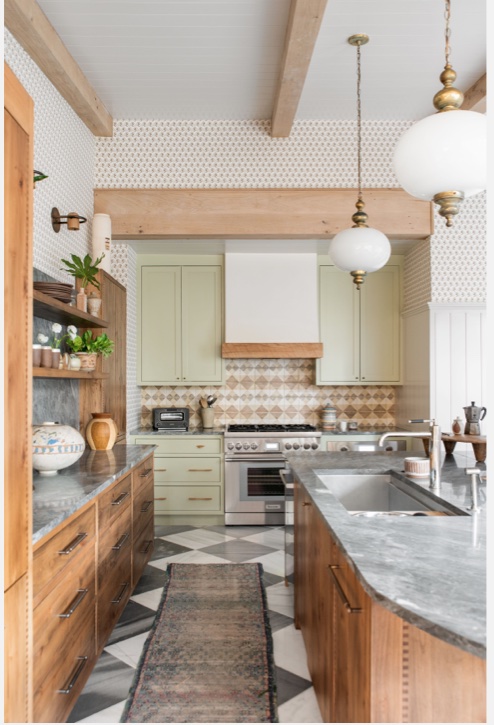
Consider incorporating open shelving instead of upper cabinets to cultivate a more welcoming and personal space. This allows for a lived-in atmosphere, blending your kitchen with the character in the rest of your home.
6. Include curves to enhance space
If you are incorporating dining into your kitchen, opt for a round table instead of a linear one. This allows for more space and adds visual interest. Additionally, consider dining chairs with rounded backs.
7. Link your color scheme
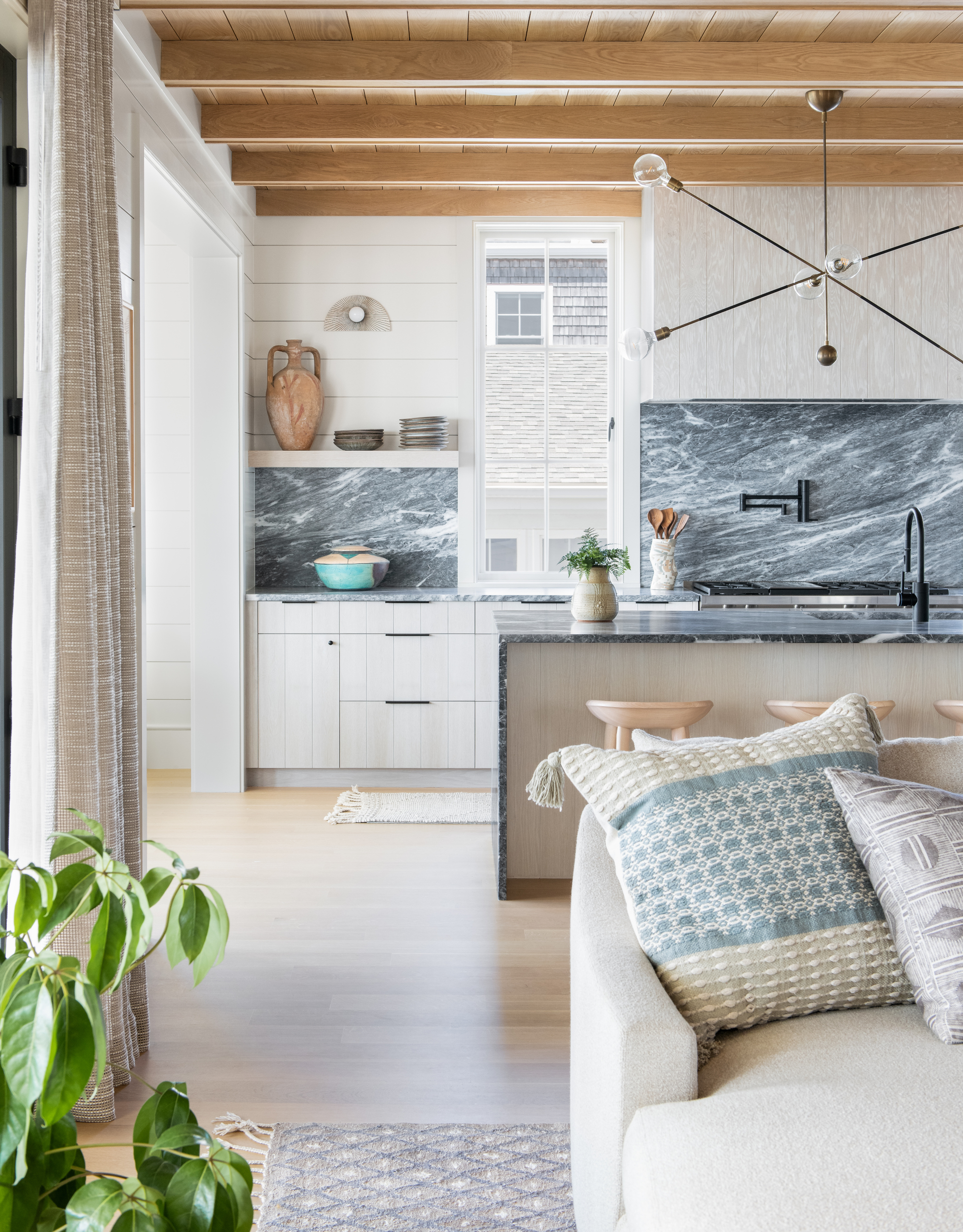
Establish a sense of cohesion and inclusion by connecting the color scheme of other areas in your house to your kitchen. This will create a harmonious flow and ensure that the kitchen doesn't feel overly utilitarian but rather an integrated part of your home.
8. Use fewer materials
To create a sense of spaciousness, maintain consistency in the materiality of your kitchen design. Extend the stone material of your countertops up the backsplash up to 18 inches. Using fewer materials will give the illusion of a larger space while also promoting a serene ambience.
9. Pick complementing colors

When choosing paint colors for your kitchen, avoid high-contrast combinations and instead opt for tonal hues that blend harmoniously. Also keep your trim color the same as the cabinetry. This will contribute to making the kitchen feel larger and more open.
10. Focus on the range
Add a captivating focal point to your kitchen by incorporating a range in a vibrant and playful color. Keep the cabinetry in a single color, allowing the range to bring life to the space, rather than relying solely on standard stainless-steel appliances. This will draw attention and create visual interest.

Cortney Bishop, principal design and owner of Cortney Bishop Design, founded the full-service interior design firm in 2007. She holds a BBA in business marketing from the University of Georgia, and pursued her design career by blending her passions for travel, art, fashion and music. Her wide-ranging talent and innate ability to mix patterns and hues has resulted in a robust portfolio of diverse, inspiring residential and commercial projects, each reflective of a client’s lifestyle, personality and aesthetic. Cortney regularly contributes to Homes & Gardens.